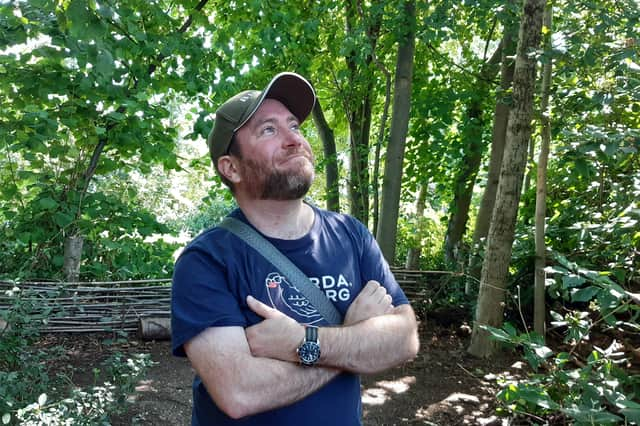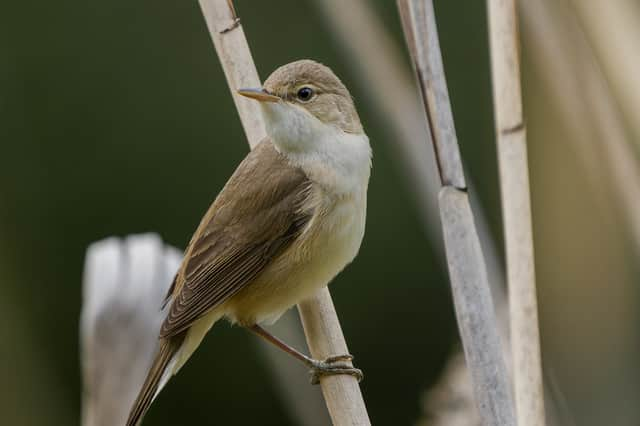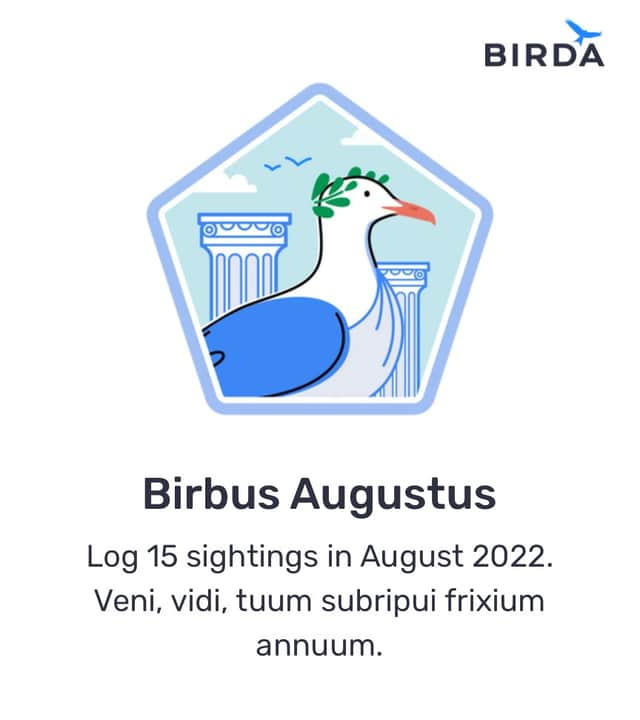Exclusive:Birda: the social media app 'gamifying' birdwatching - and helping the UK reconnect with nature
and live on Freeview channel 276
Even in densely-packed London, with its population of nearly nine million, there are hundreds of birds to be found if you're willing to turn your head to the treetops.
More than 300 species have been recorded across the greater city, and a recently-compiled list of some of the best places to spot the city's more diverse birdlife included the likes of Wormwood Scrubs - one of the largest commons in the UK - with its stonechats, chiffchaffs and wagtails.
Advertisement
Hide AdAdvertisement
Hide AdWalthamstow Wetlands, with its cormorants, tufted ducks and mute swans also made the cut, and in an unusual twist, so did Tower Hamlets Cemetery Park - home to firecrests, great spotted woodpeckers, and goldfinches.
Across the broader United Kingdom more than 600 species can be found, from seasonal migrants to wandering seabirds. Perhaps that's why it's the place where a South African bird lover and his British partner teamed up with a tech developer to finally realise their dream, and create Birda.
The UK-designed app can be used across the globe, and makes birdwatching into both a game, and a social media platform.
But as co-founder and chief technology officer Dom Barker told NationalWorld, the app can do much more.
Advertisement
Hide AdAdvertisement
Hide Ad'At this point, I got it'
While he has already been a keen outdoorsman, Birda co-founder Dom Barker had not been quite so big on birds before starting work on the app.
"If I saw a weird animal or bird, I might look it up, but I was never a birdwatcher - not someone who specifically goes out looking for wildlife."


But he said working on Birda changed that. "When I start a tech project the first thing I need to do is try and understand who my users are, and how they think.
"I got myself a bird book, I went to the local camera shop and said hello, I've started birdwatching, what camera do I need?" Then he went out to the countryside to give it a go himself.
Advertisement
Hide AdAdvertisement
Hide Ad"This was in the late spring, and I'd been followed around by a bird. I knew it was a kestrel... It was always flying behind me and hovering. I read about it in my bird book, and the reason it was following me and my dog around was because it eats insects and small mammals - and my dog is basically flushing them all away in the undergrowth."
Dom said he learned a lot about kestrels that he hadn't known before. First of all, it was not just one of the tiny hunters following him, but two - a male and a female switching places. Second, they were taking that extra risk getting so close to a human because they had a nest of hungry chicks to feed.


He spent a couple of hours every day, morning and evening, following the kestrels around. A few weeks later, it paid off. "There were three fledged baby kestrels on a fence, and two very tired parents either side. Now at this point, I got it."
He was invested in the kestrel's story, and his behaviour - and relationship with nature - started to change as a result.
Advertisement
Hide AdAdvertisement
Hide Ad"I found myself at the supermarket the next day thinking about what vegetables I was going to buy, and the first thing I thought about was what's going to be best for my kestrels - they eat insects, and if the farmer's putting too much in the way of pesticides down... that's going to have extremely negative outcomes for my birds."
'Oases in the desert'
Dom's hope for Birda is that it helps other people connect with nature, and eventually the environment, in the same way.
"All of this wildlife is everywhere, and it's only really when you start looking that you realise this," he said. He had been walking the same trail as his kestrel friends for years. "This whole Attenborough documentary had been playing out right in front of me, and I had no idea."
People living in the UK's cities - even bustling London - are surrounded by birdlife. "Those little green patches - those little parks - act effectively like oases in the desert. They're actually extremely good places to go birdwatching," he said.
Advertisement
Hide AdAdvertisement
Hide Ad

While Dom felt the app encouraged people to care more about their local birds, the benefits went both ways. Getting out in nature can be good exercise, while a mounting body of evidence is pointing towards the outdoors - and even birds themselves - as being good for your mental health.
"Time in nature is something that's now being prescribed by the NHS. It's not just my opinion than birdwatching is good for you - it's medical professionals as well."
How the app works
On Birda, users can record all of their birdwatching experiences. There are two different ways to do that, Dom says.
The first is to start a birdwatching session. "If you walk to the nature reserve, you start your session, and as you wander around, you log all of the birds that you've seen.
Advertisement
Hide AdAdvertisement
Hide Ad"When the session's completed, you press the finish button - and it gets uploaded to a feed of activity - it's a bit like Instagram," he continued. You can add your photos to your feed as well. You can even curate it by following other users, liking and commenting on their posts.
The second way to record a birdwatching experience is to add an individual sighting, without starting a session. "Maybe you're waiting for the bus and you see something interesting, you can log that as a one-off."


Birda keeps track of your stats, like 'time spent in nature' - similar to a fitness tracker - plus number of species seen, and total number of sightings. You also have the opportunity to earn achievement badges, like the 'fledgling' badge for logging your first bird.
There are also some quirky ones - you can earn the 'basic badger' badge for logging five black and white birds, while logging 15 birds last August could have scored you the 'Birbus Augustus' badge, complete with a gull wearing laurels and the phrase 'veni, vidi, tuum subripui frixium annuum' - I came, I saw, I stole your chips.
Advertisement
Hide AdAdvertisement
Hide AdDom says they also run challenges, where users have the potential to win real prizes, from Birda merch to tools like binoculars to help on their birdwatching journey. To make sure the odds aren't just stacked towards the professionals, anyone who meets a certain threshold will get their name thrown into the draw to win a prize.
But there is a leaderboard for the more competitive. In the year-long Greater London challenge, which is underway right now, the current frontrunner has logged 135 species.
The app is also great for people new to birdwatching, he said, because you can get unidentified sightings identified by the community. And if you're someone who likes to lend a hand to scientists, you can give permission for your bird sightings to be included in data passed along to conservationists.
At the moment, Birda still relies on photos to record or ID birds, but Dom says they are currently working on integrating audio - so people can upload their recordings of birdsong too.
Advertisement
Hide AdAdvertisement
Hide AdWhere can I use it?
Anywhere! Theoretically, you can use the app and log recordings from anywhere in the world. Dom says the app is still fairly new, and has a userbase of just over 100,000 people - the bulk of them either in the UK or South Africa, where one of his fellow co-founders is from.
They have some users who sit by the local pond in their village everyday logging the same duck - and they love and need those users too.
Dom also hopes that the app can help bring a bit of positivity into peoples' social media scrolling - avoiding some of the pitfalls and negativity of other platforms. "Instead, you're seeing people like you - doing things that you enjoy."
You can download Birda for free on iOS or Android, in the relevant app store.
Comment Guidelines
National World encourages reader discussion on our stories. User feedback, insights and back-and-forth exchanges add a rich layer of context to reporting. Please review our Community Guidelines before commenting.
